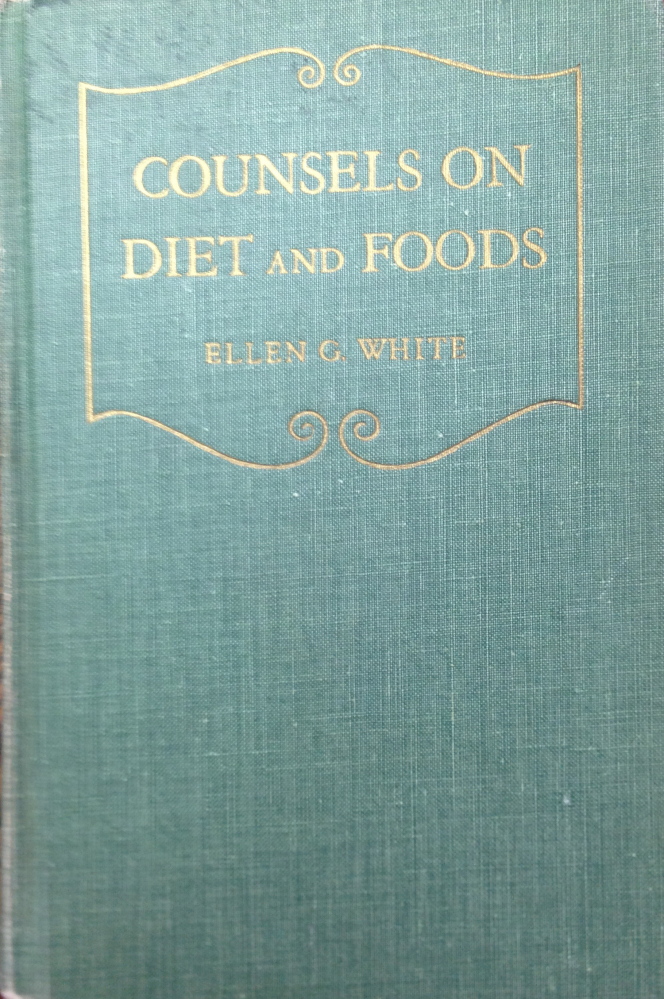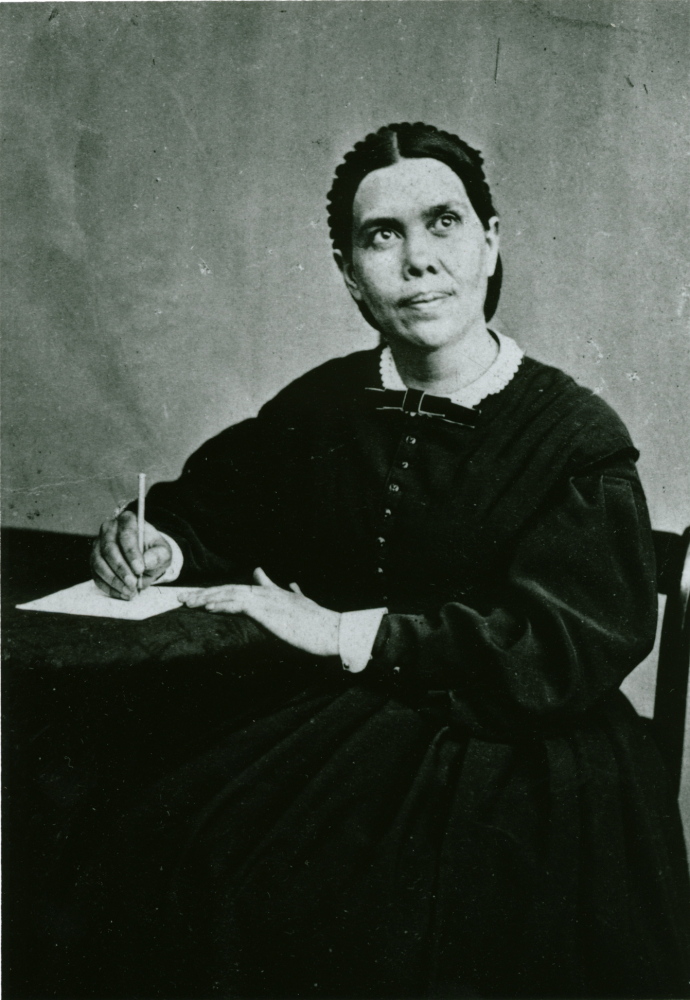Vegetarianism can sometimes seem like a 1970s fad that mushroomed alongside organic food. However, meatless eating stretches back through recorded history to ancient Greece and India, waxing and waning in popularity over the ages with the rise and fall of religious and philosophical ideas.
We Mainers can claim our own share of its history, most prominently in the life of Ellen Gould White.
“It is impossible to talk about vegetarianism in the 21st century without mentioning Seventh-day Adventists and Ellen G. White,” said White expert Theodore Levterov, who directs the Ellen G. White archive at Loma Linda University in Loma Linda, Calif., a Seventh-day Adventist institution White helped found.
Born to Robert and Eunice Harmon in 1827 in a home on Route 114 in Gorham, White went on to found a major religion and become an influential early American advocate of vegetarianism.
“During her lifetime she was very well known,” said historian William David Barry with the Maine Historical Society. “And she’s certainly one of the most important health advocates from Maine.”
When she was a few years old, White moved with her family to the corner of Spruce and Clark streets in Portland’s West End.
Levterov says she likely attended the former Brackett Street School, now home to the Fresh Approach market. Her formal schooling ended at age 9, when an older girl threw a stone that struck her in the head, knocking her unconscious. The incident left her in a stupor for three weeks and disfigured her face. Slowly White began to recover but she was debilitated and ultimately forced to leave school.
White grew up in an era of religious fervor and exploration, marked by crowded revivals and prophecies about the end of times. She and her family attended the Chestnut Street Methodist Church in Portland, which today is Grace restaurant.
In 1840, White and her family heard the Baptist preacher William Miller from New York speak at the Casco Street Christian Church, at the corner of Casco and Cumberland streets. Miller famously predicted the imminent return of Christ in either 1843 or 1844. When that didn’t happen, many believers, known as Millerites, were left adrift.
As a 17-year-old in Portland in 1844 who was one of the disappointed believers, White experienced the first of many incidents she described as visions from God. Her insights from these experiences would ultimately lead to the founding of the Seventh-day Adventist Church.
Before the first of her visions, White went to Beethoven Hall (located near the present-day Monument Square) and heard Maine-native William Ellis Foy, who was black, preaching and speaking about his own visions.
Two years later, the young prophetess married the preacher James Springer White, who was born in Palmyra, and they began traveling the country and the world, speaking and publishing their views. Ellen G. White published widely, with more than 40 books to her credit during her lifetime and more than 100 published posthumously, plus thousands of periodical articles, speeches, pamphlets and other documents.
Levterov said White’s two major visionary messages about health came in 1863 and 1865, causing her to promote the benefits of a vegetarian diet. But since she lived in 19th-century America, where vegetarian food was scarce, and she admitted to a personal fondness for meat, White didn’t “become a strict vegetarian until 1894,” Levterov said, “although her habitual practice after 1863 was to avoid eating meat.”
White became a full-time vegetarian in 1894 while at a church meeting in Australia, Levterov continued.
“She was approached by a Catholic woman,” Levterov said, “who prompted her to think about the cruelty towards animals killed for meat.” He added, “Ellen White’s major arguments for vegetarian diet were usually connected to its health benefits. But her decision to become a strict vegetarian came as a result of ethical concerns.”
Pastor Rick Kuntz of the Auburn Seventh-day Adventist Church said White was a sought-after speaker on a variety of topics, including health. “She would lecture to crowds as big as 20,000,” Kuntz said.
In “Vegetarian America: A History,” Karen and Michael Iacobbo write that White “became world renowned after she and her spouse founded a new Christian religion – the Seventh-day Adventist Church, which encouraged its members to become vegetarians.”
In 1905, White published “Ministry of Healing,” regarded as her most important work related to diet and health. In it she writes, “Grains, fruits, nuts, and vegetables constitute the diet chosen for us by our Creator.”
Today, the church has a worldwide reach with more than 18 million followers and a message that includes the importance of proper nutrition, with whole, vegan food seen as the ideal. Seventh-day Adventists aren’t required to be vegetarian, but it’s estimated that 50 percent do follow a meat-free diet. (Whether or not they’re vegetarians, few church members eat pork or other meats considered unclean in the Bible.)
“Seventh-day Adventists believe that what you eat does not make you holier, but it can make you healthier,” Levterov said. “And, of course, when you are healthy, you are happy. And that is the whole point of diet within the Seventh-day Adventist community.”
Studies have repeatedly shown Seventh-day Adventists, who also tend to be non-smokers and non-drinkers, to be in better health than average Americans. The city of Loma Linda, California, where the university attracts a large number of Adventists, is considered one of the world’s Blue Zones, a geographical area whose residents have notably longer life spans.
White, who passed away in 1915, is no longer the household name she once was, but last year Smithsonian magazine named this Maine native one of the “100 Most Significant Americans of All Time.”
Here in Portland, her childhood home is gone and replaced by part of the Reiche Elementary School playground. Yet White’s legacy lives on in the Seventh-day Adventist Church (and its hospitals and universities) and in the growing popularity of vegetarian food.
“Today, veganism and vegetarianism are being seen as not just something for physical health but also something that keeps people calmer and more alert and gives them more endurance,” said Pastor Kuntz, who started a church-run vegan café in Lewiston as a form of ministry advocated by White. “Ellen White was ahead of her time, and she was a pioneer.”
Avery Yale Kamila is a freelance food writer who lives in Portland, Maine. She can be reached at:
avery.kamila@gmail.com
Twitter: AveryYaleKamila
Copy the Story LinkSend questions/comments to the editors.




Success. Please wait for the page to reload. If the page does not reload within 5 seconds, please refresh the page.
Enter your email and password to access comments.
Hi, to comment on stories you must . This profile is in addition to your subscription and website login.
Already have a commenting profile? .
Invalid username/password.
Please check your email to confirm and complete your registration.
Only subscribers are eligible to post comments. Please subscribe or login first for digital access. Here’s why.
Use the form below to reset your password. When you've submitted your account email, we will send an email with a reset code.